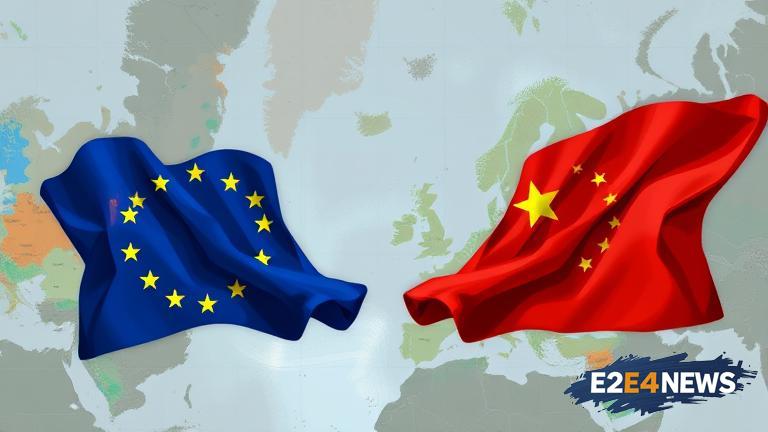The relationship between China and the European Union has become increasingly complex in recent years, with both sides facing numerous challenges and opportunities. The EU has been seeking to strengthen its ties with China, while also addressing concerns over trade, security, and human rights. China, on the other hand, has been expanding its global influence through initiatives such as the Belt and Road Initiative, which has sparked both interest and skepticism from European countries. Despite these challenges, it is essential for both China and the EU to show mutual respect and understanding in their interactions. This requires a willingness to listen to each other’s concerns and to find common ground on issues such as trade, climate change, and global governance. The EU has been critical of China’s human rights record, particularly in regards to the treatment of Uyghur Muslims in Xinjiang. China, in turn, has been frustrated by the EU’s reluctance to grant it market economy status, which it sees as a necessary step towards greater economic cooperation. However, both sides have also made efforts to cooperate on issues such as climate change and sustainable development. The EU has been a key partner for China in its efforts to reduce carbon emissions and transition to a more sustainable economy. China, in turn, has been a major investor in European renewable energy projects and has provided significant funding for EU-led climate initiatives. Despite these positive developments, the relationship between China and the EU remains fraught with tension and uncertainty. The EU has been wary of China’s growing military presence in the South China Sea and its increasing influence in European affairs. China, on the other hand, has been critical of the EU’s efforts to promote democracy and human rights in countries such as Hong Kong and Taiwan. To navigate these complexities, it is essential for both China and the EU to prioritize mutual respect and understanding. This requires a willingness to engage in open and honest dialogue, to listen to each other’s concerns, and to find common ground on issues of mutual interest. By doing so, China and the EU can build a more stable and cooperative relationship, one that benefits both sides and promotes greater peace and prosperity in the world. The future of the relationship between China and the EU will depend on their ability to balance their competing interests and to find ways to cooperate on issues of mutual concern. This will require a deepening of mutual understanding and respect, as well as a willingness to compromise and find common ground. Ultimately, the success of the China-EU relationship will have significant implications for the future of global governance, trade, and security, and it is essential that both sides prioritize mutual respect and cooperation in their interactions.
